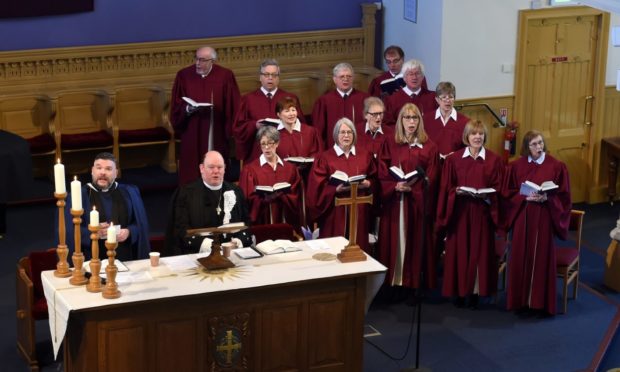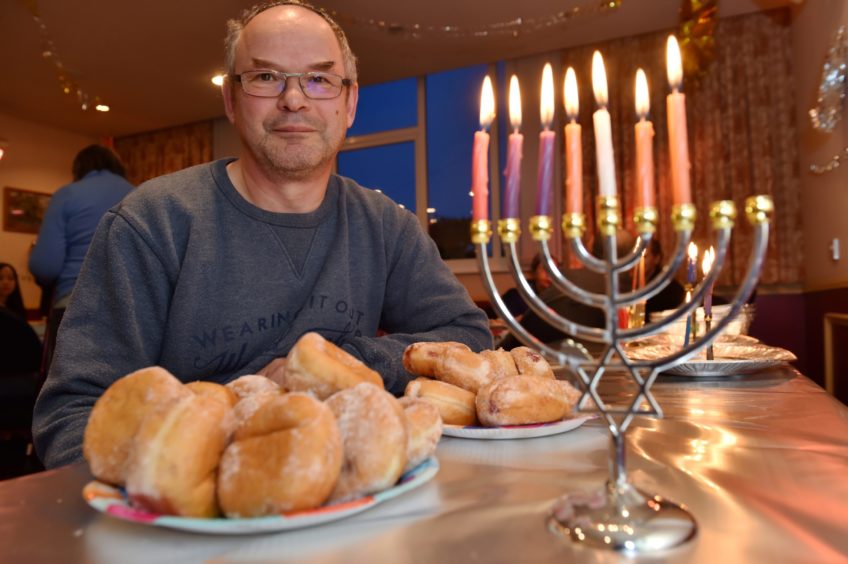Scottish Christians and Jews may be able to mark the important religious holidays of Easter and Passover together if restrictions are eased in time.
First Minister Nicola Sturgeon confirmed communal worship will be able to restart in Scotland from April 5, with restricted numbers.
But with Easter Sunday on April 4, and Passover finishing on the same date, the first minister said restrictions on worshipping together could be loosened earlier to “take account” of important days for various religions.
The first minister said: “Communal worship we also hope will restart around April 5, albeit with restricted numbers to begin with.
“However, in deciding the exact date for this, we will obviously take account of the timing of major religious festivals, for example Easter and Passover, so it may be a few days earlier when communal worship can restart.”
Rt Rev Dr Martin Fair, the moderator of the general assembly of the Church of Scotland, said being able to worship within churches for Easter would be a boost for Christians across the country.
He said: “We note the first minister’s comments about the possibility of church buildings being allowed to open for Easter and acknowledge that many people will be delighted to see light at the end of the tunnel.
“Christians are Easter people and we live with hope in all circumstances – hope that has sustained us through this last year.
“The announcement in the Scottish Parliament today is a good beginning to a return to normality and we look forward to further progress in the easing of restrictions.
“However, individual congregations will proceed cautiously according to their own circumstances and will only re-open buildings when it’s safe for them to do so.”
Mark Taylor, the president of the Aberdeen synagogue, said the city’s Jewish community will be thinking very carefully about how best to mark Passover, which is due to run from March 27 to April 4.
Typically, the community would meet for a big meal with around 20 to 30 people eating at the synagogue on Dee Street in the city centre.
He said: “We’ve been shut recently, conducting everything online.
“We had to recently have Hanukkah online, which was as okay as it could be, and our next festival coming up next week of Purim will be online as well.
“Purim last year was really the last time the whole community got together in one place, as it was just before lockdown.
“So it will be sad that we won’t be doing it in the flesh, but instead we will be doing Purim along with the Edinburgh community with some more online festivities.
“When it comes to Passover, we will not be taking anything lightly, we’re going to carry out a risk assessment and look at what we can and can’t do.
“If we can, we may open up for a short service.
“Normally we would have a big community meal for Passover called Seder, but I very much doubt we’ll be doing anything like that, I just don’t see us feeling comfortable with that, even with much of us vaccinated.
“Next year, maybe, but not this year.”
Aberdeen’s synagogue and Jewish community centre is the most northerly synagogue in the UK, and caters to Jewish people from across the region.
Mr Taylor said the community has greatly missed coming together to mark important dates for followers of the Jewish faith as a result of the pandemic.
He added: “Our lives revolve around community events, and without those events, it’s just not the same.”
Owen Morris, pastor at the Junction Church, Inverness, said they were disappointed they wouldn’t be able to gather for public worship sooner.
He said: “We are disappointed to hear that public worship is unlikely to be allowed before April. Churches are a vital source of emotional and spiritual support, which is desperately needed at the present time. The isolation resulting from lockdowns and social restrictions has taken a heavy toll on mental health in our society, and gatherings for worship, even socially distanced, can have a crucial role in healing this harm.
“Churches have been highly compliant with Covid regulations and proved themselves during the summer and autumn to be extremely safe places, even when the Covid incidence was much higher than it is now. In England, Wales and Northern Ireland, the importance of public worship has been recognised and it has been allowed to continue throughout the current lockdown. We hope that the Scottish Government will reconsider their plans, and allow churches to re-start services in the very near future.”

